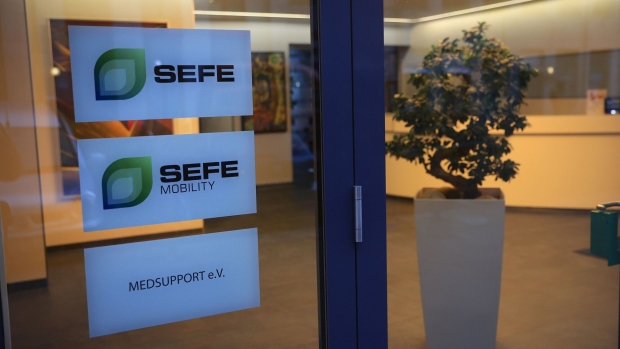Sep 21, 2023
Germany Faces Criticism Over SEFE’s Renewed LNG Trade With Russia
, Bloomberg News

(Bloomberg) -- The German government is facing criticism over its energy ties as a taxpayer-backed company re-enters the liquefied natural gas trade with Russia.
Securing Energy for Europe GmbH — a former unit of Russian gas giant Gazprom PJSC — plans to load LNG produced by the Yamal plant in Siberia early next month. Germany nationalized the company, known as SEFE, last year at the height of Europe’s energy crisis.
Although the cargo is headed for India, a German state-owned company doing deals with Russia is causing some alarm. Critics say it flies in the face of Germany’s pledge to avoid handling Russian LNG in the fallout of the Kremlin’s war in Ukraine.
“This contradicts pretty much everything the German government has said on the subject in the past,” said Christian Leye, a member of parliament from the opposition Left Party group. “The economic entanglements with Russia are apparently not as easy to resolve as politicians would have us believe.”
Germany’s economy ministry acknowledged Bloomberg’s request for comment, saying it is looking into the matter.
The shipment highlights the complexity and global nature of the trade in LNG, which the European Union has increasingly relied on after Russia severely curtailed pipeline gas supplies to the region last year. Some EU nations — though not Germany — have actually increased their LNG imports from Russia as the region revamps its energy infrastructure.
Germany has opposed, though not banned, the procurement of LNG from Russia. In January, Berlin informed companies “that it will take appropriate measures to exclude purchases of Russian LNG if possible.”
Russian Cargo
SEFE’s Amur River vessel will pick up the Russian cargo via transshipment in Belgium on Oct. 1 and deliver it in India later in the month, port data show.
“German ports are not involved in this process, nor are European or German gas networks,” a company spokesperson said by email. “These delivery volumes therefore do not reach the German market, industry or consumers in Germany.”
The trading firm has a long-term contract to buy volumes from Yamal LNG, which it inherited from its Gazprom past. It also has separate long-term obligations to supply India’s GAIL Ltd.
Under a 2018 agreement, SEFE would have to pay for the delivery quantities, even if they weren’t taken and transported to India, according to the company. “Such a procedure would not be economically justifiable,” it said.
SEFE, once known as Gazprom Germania, faced financial problems due to its ties to the Russian gas giant in the early months of the war last year, prompting the government in Berlin to step in to halt the firm’s collapse. Its business is largely conducted by traders based in London and Singapore.
Following Germany’s takeover of the firm, Moscow slapped its own sanctions on the company, halting its access to Russian LNG. In June, Russia eased its ban on LNG shipments to the ex-Gazprom unit.
Critics now want to know why Germany is allowing the shipment if its position for months has been to avoid Russian LNG.
“It must be urgently clarified here who in the German government knew about these deals,” Constantin Zerger, head of the energy climate department at the Environmental Action Group, said in a statement. “The trade in Russian LNG must be stopped immediately.”
(Updates with SEFE comments from ninth paragraph.)
©2023 Bloomberg L.P.






